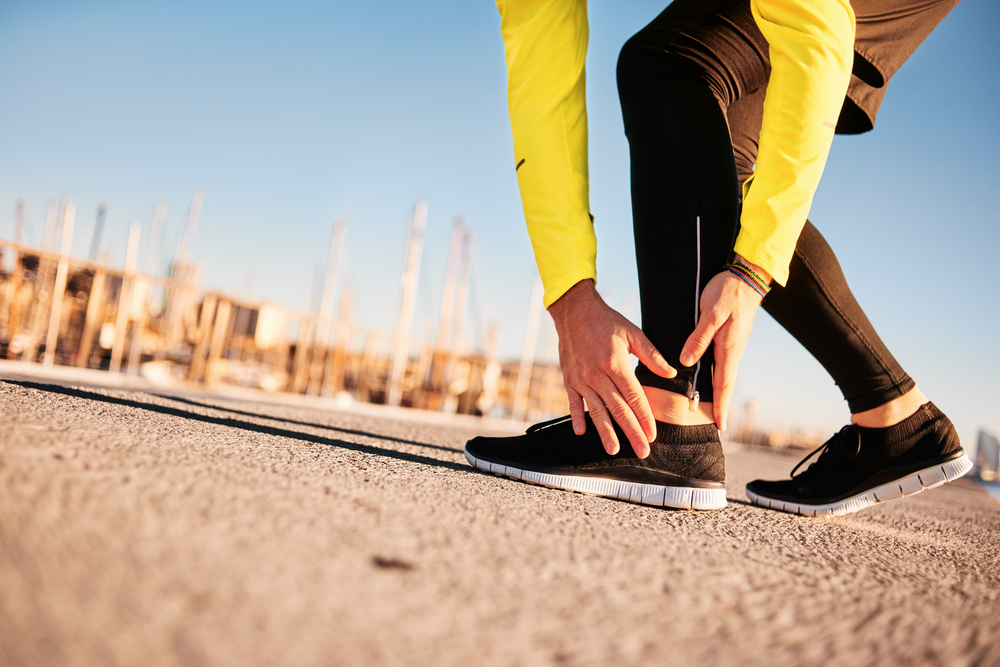
16 Sep Sports Injuries That Occur In Long Island’s Feet
Everybody knows that exercise is good for you. But even if you are careful, there are risks associated with exercise. For most people, this might mean blisters and aching muscles, but some have more serious sports injuries. Sports injuries are simply injuries that occur as a result of exercising or playing sports. These can happen because of inadequate training, not warming up, badly fitting gear, or perhaps they are just accidents. Sports injuries affect players of all ages. Approximately 30 million young people participate in youth sports in the U.S. According to the Centers for Disease Control “High school athletes account for an estimated 2 million injuries and 500,000 doctor visits and 30,000 hospitalizations each year.”
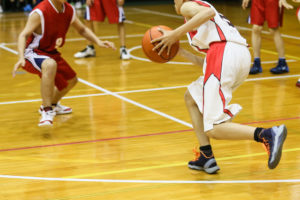 Sports injuries can affect many parts of the body, including sports injuries that occur in feet. According to Medscape, “Estimates indicate that 15% of sports-related injuries affect the foot alone.” Professional athlete Sloane Stephens recently withdrew from the U.S. Open due to a foot injury. Other athletes, both professional and amateur, frequently encounter foot problems.
Sports injuries can affect many parts of the body, including sports injuries that occur in feet. According to Medscape, “Estimates indicate that 15% of sports-related injuries affect the foot alone.” Professional athlete Sloane Stephens recently withdrew from the U.S. Open due to a foot injury. Other athletes, both professional and amateur, frequently encounter foot problems.
Because the feet support the weight of the whole body, and in some sports, endure great force and stress, sports injuries to the foot can be tricky to diagnose and treat. Although the injuries are usually caused by trauma, they can also be caused by overly intense workouts, incorrect or inadequate adequate warm-ups, wearing the wrong shoes, or playing on hard or rough surfaces.
Injuries to the foot can be acute, which means they come on suddenly, or chronic, which means they come on gradually. Sudden injuries, such as a calcaneal fracture tend to be accidental and may be caused by sudden impact or an abrupt, awkward movement.
Injuries that come on gradually, such as bruised heels or stress fractures, are common in professional athletes because they train so intensely and tend to overuse a particular part of the body. They are also common in people who train regularly in a repetitive motion such as those training for a marathon. There are two main reasons for this. First, such intense training does not allow time for the body to recover between training sessions and because minor technique mistakes are repeated so often.
In general, sports injuries are the result of doing too much, too fast, inadequate preparation, incorrect equipment, and just plain accidents. Some of them are preventable. Talk to your foot specialist to determine which shoes are best for your feet and your sport. Experts recommend that athletic shoes should be replaced every year and running shoes should be replaced approximately every 300-400 miles.
Some of the common sports injuries to the feet are plantar fasciitis, which is an inflammation of a thick band of tissue that connects the heel bone to the toes, often due to over-stretching. This injury is common in running and any sport that involves running.
Another common problem is Achilles tendonitis, which is inflammation of the Achilles tendon. This injury is frequently seen in sports such as tennis, basketball, volleyball, gymnastics, cheer leading, and other sports that involve jumping.
Whether you engage in everyday exercise or are a professional athlete, your feet are critically important. If you suffer from a strain, a fracture, or another injury to your feet, it can be difficult to balance, turn, and just move around. No matter how your injury happened, you need to take care of your feet. Take precautions to avoid injuring your feet.
Contact the doctors at Great Neck Family Foot Care if you suffer symptoms such as:
- pain, swelling, or numbness
- you are unable to put weight on the area
- a previous injury is acting up
- a joint feels unstable
If you are experiencing foot problems, you need trained, experienced professional advice. Contact us to discuss how we can help.
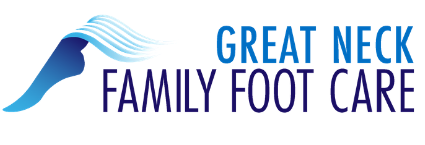
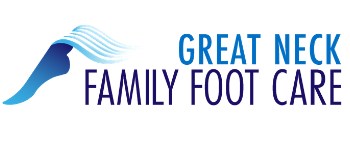
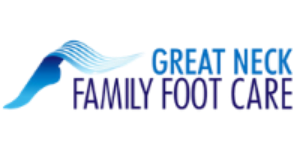


Sorry, the comment form is closed at this time.